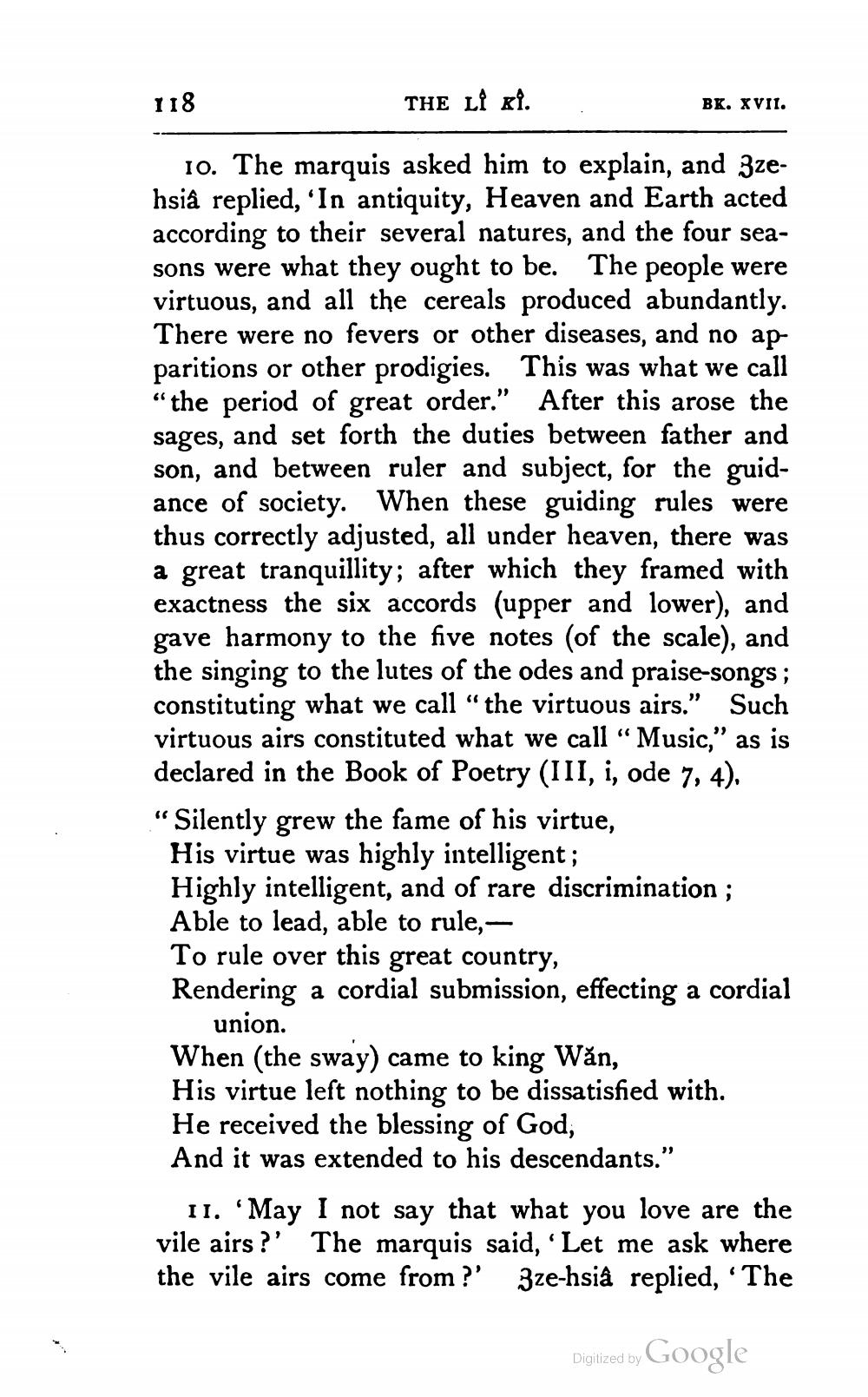________________
118
THE LÎ ki.
BK. XVII.
10. The marquis asked him to explain, and 3zehsiâ replied, 'In antiquity, Heaven and Earth acted according to their several natures, and the four seasons were what they ought to be. The people were virtuous, and all the cereals produced abundantly. There were no fevers or other diseases, and no apparitions or other prodigies. This was what we call “the period of great order.” After this arose the sages, and set forth the duties between father and son, and between ruler and subject, for the guidance of society. When these guiding rules were thus correctly adjusted, all under heaven, there was a great tranquillity; after which they framed with exactness the six accords (upper and lower), and gave harmony to the five notes (of the scale), and the singing to the lutes of the odes and praise-songs; constituting what we call “the virtuous airs.” Such virtuous airs constituted what we call “Music," as is declared in the Book of Poetry (III, i, ode 7, 4). “Silently grew the fame of his virtue, His virtue was highly intelligent; Highly intelligent, and of rare discrimination ; Able to lead, able to rule, - To rule over this great country, Rendering a cordial submission, effecting a cordial
union. When (the sway) came to king Wăn, His virtue lest nothing to be dissatisfied with. He received the blessing of God, And it was extended to his descendants."
11. “May I not say that what you love are the vile airs ?' The marquis said, 'Let me ask where the vile airs come from?' Zze-hsiâ replied, “The
Digitized by Google




